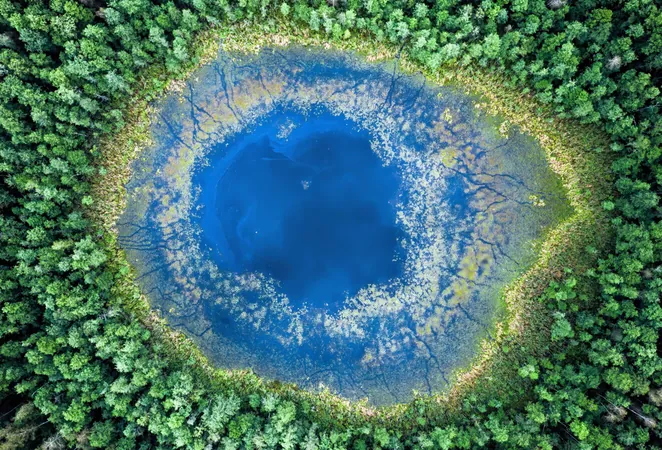
Alarming Decline in Global Freshwater Levels: Are We Facing a Water Crisis?
2024-11-17
Author: Mei
Freshwater is an irreplaceable resource, essential for the survival of all life on Earth. However, alarming new findings reveal that our planet's freshwater resources are at an unprecedented risk, sparking concern among scientists and policymakers worldwide.
Recent research led by an international team of scientists, harnessing data from NASA and German satellites, suggests a dramatic drop in global freshwater levels commencing in May 2014, with no signs of recovery. Hydrologist Matthew Rodell from NASA's Goddard Space Flight Center pointed out that the average amount of freshwater stored on land has decreased by 290 cubic miles (1,200 cubic kilometers), a staggering loss equivalent to two and a half times the volume of Lake Erie.
Using advanced observations from the Gravity Recovery and Climate Experiment (GRACE) satellites, the research team uncovered this alarming trend. The GRACE satellites operated from 2002 to 2017, monitoring changes in Earth's gravity to detect shifts in water mass underground and at the surface. This satellite mission was extended with the GRACE-Follow On (GRACE-FO) satellites, which have continued to provide critical data since 2018.
The initial drop in freshwater levels was precipitated by extreme droughts in northern and central Brazil, followed by adverse weather conditions across various regions, including Australasia, South America, North America, Europe, and Africa. The intense El Niño event from 2014 to 2016, one of the strongest in history, played a significant role in altering global weather patterns. Yet, even after the El Niño effects faded, freshwater levels failed to rebound, raising urgent questions about the long-term implications of climate change.
Rodell noted that from January 2015 onward, a remarkable 13 out of the 30 most severe droughts recorded by GRACE occurred, correlating with rising global temperatures. NASA meteorologist Michael Bosilovich emphasized that warming climates lead to increased evaporation and heightened atmospheric water-holding capacity, resulting in more severe droughts.
The situation has further consequences. Extreme weather events due to global warming can create intense precipitation patterns that do not sufficiently infiltrate the soil, leading to runoff instead of replenishing groundwater reserves. Such conditions threaten agricultural sustainability, community water sources, and global stability, often forcing regions to over-rely on diminishing groundwater supplies.
The United Nations projects that by 2024, water scarcity could lead communities to turn to contaminated water sources, significantly heightening the risk of disease and famine. This grim forecast underscores the interconnectedness of climate change, water management, and human well-being.
Despite significant evidence linking global warming to reductions in freshwater availability, experts warn of uncertainties in predicting future trends. Hydrologist Susanna Werth pointed out the complexities involved in climate modeling, acknowledging the challenges in forecasting future freshwater scenarios.
As we grapple with these daunting realities, a pressing question looms: Will global freshwater levels stabilize, recover, or continue their alarming decline? With nine of the hottest recorded years aligning with this swift downward trend in freshwater, scientists warn that this may not be a mere coincidence but a precursor to more severe environmental and humanitarian crises.
The urgency for proactive measures and adaptive strategies is clearer than ever as we stand at a crossroads in our stewardship of Earth's precious freshwater resources. This critical issue demands immediate attention to secure a sustainable future for generations to come.
Stay informed on these vital environmental concerns and their implications on our daily lives by subscribing to our newsletter for exclusive updates and expert insights.


 Brasil (PT)
Brasil (PT)
 Canada (EN)
Canada (EN)
 Chile (ES)
Chile (ES)
 España (ES)
España (ES)
 France (FR)
France (FR)
 Hong Kong (EN)
Hong Kong (EN)
 Italia (IT)
Italia (IT)
 日本 (JA)
日本 (JA)
 Magyarország (HU)
Magyarország (HU)
 Norge (NO)
Norge (NO)
 Polska (PL)
Polska (PL)
 Schweiz (DE)
Schweiz (DE)
 Singapore (EN)
Singapore (EN)
 Sverige (SV)
Sverige (SV)
 Suomi (FI)
Suomi (FI)
 Türkiye (TR)
Türkiye (TR)